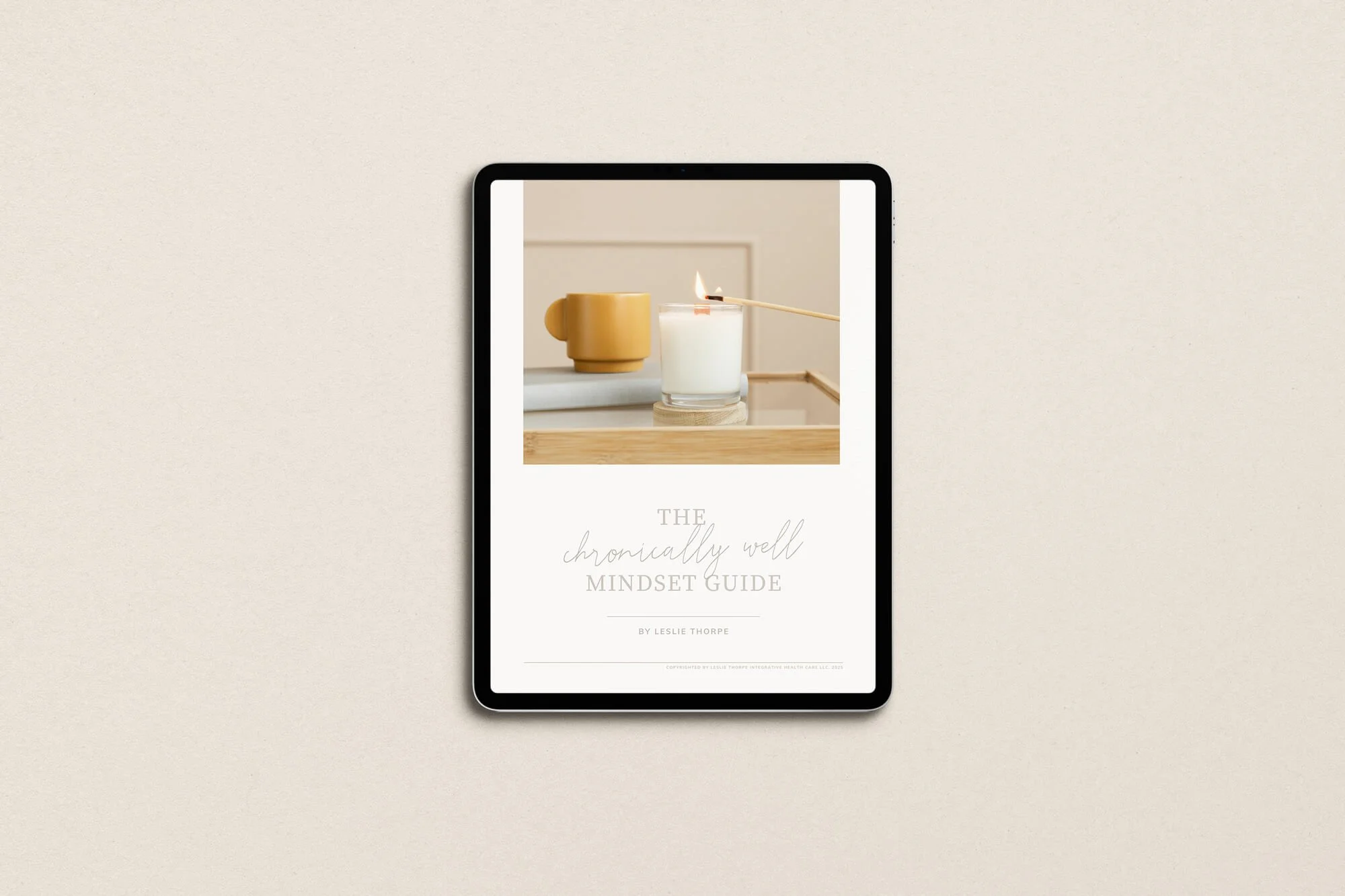How A Thriving Mindset Can Help Your Chronic Illness
Changing my mindset has changed my health. Literally.
Before I changed my mindset, I was following my doctor's advice to “watch and wait” for my cancer to keep growing to the point of requiring treatment. I was waiting for the cancer to take over my life for a third time.
It sounds awful. But, what else could I do? I felt powerless.
Several years ago, a switch flipped inside me. I was tired of waiting and feeling powerless. I was tired of catching every cold and turning it into a secondary infection. I was tired of feeling tired.
I started taking action to get myself healthier and stronger - partly to get myself ready for whatever treatment I might have in my future, and partly out of a hope that I could become so well that my body could better focus on eradicating the cancer. Delusional or not, I started to put my focus on my underlying wellness. And, the layers of illness have been slowly peeling away ever since.
While I might not be able to reach the nirvana of perfect health regardless of my efforts, I now know that I have power to make a difference in my health.
I call this a thriving mindset.
Fundamental to this mindset is recognizing that while you might not be able to control your illness, you have some control over how you think about it - and, opening your mind to exploring what you can do to better your health beyond following doctor's orders.
This mindset involves accepting your illness and working with it, rather than against it. It involves giving yourself some self-compassion as you live with the inherent difficulties of it. But, it also leaves room for hope and the possibility that your healthy choices will make more room for your body to heal.
The Main Components of a Thriving Mindset
Accepting Your Illness
Many of us spend so much time trying to ignore our illness and live a “normal” life. We don’t fully accept that our lives have fundamentally changed. It can be hard to see that we need to make some adjustments to work within the new parameters.
When you are able to accept your “new normal,” it can give you space to live your life in a way that works better for you in the here and now. Accepting your illness and its impact on your life allows you to meet yourself where you are, and have more realistic expectations of yourself.
Accepting your illness gives you an opening to better listen to your body. When you acknowledge how you are feeling, it provides an opportunity for you to act accordingly.
This does not necessarily mean liking your illness, but it means working with what you have in a realistic way.
Self-Compassion
Once you are able to accept the inherent difficulties and realities of your illness, it is important to give yourself compassion for what you are going through.
There is just no easy way to live with chronic illness, which is why it is important to give yourself space to feel the feelings (frustration, disappointment, etc.) AND to give yourself enough time to rest, care for yourself and cope with your symptoms.
You are dealing with A LOT. Give yourself some credit for all that you are enduring! I hope you realize all that it is taking for you to merely survive. I hope you also recognize what you are doing to the best of your ability.
And, when you realize that your body is not the enemy, more opportunities to care for yourself arise. When you treat your body kindly and listen to the signals it is giving you, you will know better what you need. You are not going to be able to get a new body (at least not with today’s technology). So, honor the one you have even if it is letting you down right now.
Having Hope
While it is important to accept your diagnosis and its corresponding limitations, it is ideal to balance that acceptance with hope that you can achieve your version of wellness.
One of my favorite quotes is:
“Believe the diagnosis, not the prognosis” — Deepak Chopra
I love how this quote condenses the idea that we can find a balance between the reality of the situation WHILE maintaining some hope that we could improve our situation - and, possibly defy the odds.
Hope is important because it is aligned with the belief that change is possible. Taking this one step further, hope can include a belief that you can help to make that change happen. When you have hope, it leads to greater confidence and commitment to what you can do for yourself. This provides underlying motivation to continue to make healthy lifestyle changes.
This doesn’t need to be delusional hope. There is a lot of information out there pointing to the fact that most chronic illnesses can be managed or reversed through lifestyle changes. While some cannot, looking further into the possibilities of what you can do for yourself and how you can make your situation better is something that can give you hope for creating a better life for yourself despite your chronic illness.
While I am still “watchful waiting” in the medical sense, what I do for my health on a daily basis is anything but waiting.
I follow doctor's orders and I do a whole lot more through the guidance of integrative providers. I use components of the Thriving Mindset everyday to keep myself going. This has changed just about every aspect of my life for the better.
I don't know how my cancer story will evolve, but I am not willing to merely wait to find out. I know that I am doing a lot to ensure that the story ends as well as it can. And, in the meantime, I am going to take great care of myself, enjoy my improved health and quality of life, and share what I have learned with my health coaching clients.
Transform Your Mindset
The Chronically Well Mindset Guide is your companion to developing a mindset to empower your life with chronic illness.
Does this resonate?Please share this post with friends! Click the menu on the right to share on social media.





